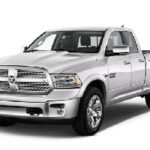When considering the resale value of motorcycles, understanding the factors that influence Kelley Blue Book (KBB) values is crucial. Whether you’re buying or selling a motorcycle, comprehending what affects its resale worth can help you make informed decisions. Kelley Blue Book, a trusted resource in the automotive industry, provides valuable insights into pricing and valuation, taking into account various factors that impact the final value of motorcycles. In this article, we delve into the key factors affecting KBB motorcycle resale values.
Factors Affecting KBB Motorcycle Resale Values

1. Brand and Model:
The brand and model of a motorcycle play a significant role in determining its resale value. Certain brands are known for their reliability, performance, and popularity, which can translate into higher resale prices. Iconic brands with a strong reputation, such as Harley-Davidson, BMW, and Honda, often retain their value better than lesser-known brands or models with limited market demand.
2. Age and Mileage:
Similar to cars, the age and mileage of a motorcycle are critical factors in determining its resale value. Generally, motorcycles with lower mileage and newer model years command higher prices in the resale market. However, older motorcycles with exceptionally low mileage may also retain value well, especially if they are well-maintained or considered classic or vintage models.
3. Condition and Maintenance History:
The overall condition of a motorcycle greatly influences its resale value. Potential buyers are more inclined to pay a premium for a well-maintained motorcycle that shows minimal signs of wear and tear. A thorough maintenance history, including regular servicing, documented repairs, and upgrades, can enhance the perceived value of the motorcycle and justify a higher resale price.
4. Market Demand and Trends:
Market demand and current trends significantly impact the resale value of motorcycles. Popular models or styles that align with current consumer preferences may command higher prices in the resale market. Conversely, motorcycles that are no longer in demand or have been surpassed by newer models may experience depreciation at a faster rate.
5. Modifications and Customizations:
Also Read: The Classics: Vintage Harley Davidson Bike Models
Modifications and customizations can both positively and negatively affect a motorcycle’s resale value. While certain modifications, such as performance upgrades or cosmetic enhancements, may increase the appeal and value of the motorcycle to potential buyers, others may detract from its resale worth. Excessive modifications that deviate from the original specifications or compromise the motorcycle’s functionality may limit its marketability and resale value.
6. Geographic Location:
The geographic location can also influence KBB motorcycle resale values. Factors such as climate, terrain, and local market preferences can impact the demand for specific types of motorcycles and affect their resale prices accordingly. For example, motorcycles suited for off-road or adventure riding may command higher prices in regions with rugged terrain, while sport bikes may be more desirable in urban areas with a vibrant motorcycle culture.
7. Economic Conditions:
Economic conditions, including factors such as inflation, interest rates, and consumer confidence, can affect the resale value of motorcycles. During periods of economic uncertainty or downturns, consumers may be more cautious with their spending, leading to decreased demand for motorcycles and lower resale prices. Conversely, during times of economic prosperity, higher disposable incomes and increased consumer confidence may drive up demand and support higher resale values.
8. Supply and Inventory Levels:
The supply and inventory levels of motorcycles in the resale market also influence their prices. Limited supply or scarcity of a particular model, especially if it’s highly sought after, can drive up prices and result in higher resale values. Conversely, an oversupply of certain models or an influx of new inventory may lead to price competition and downward pressure on resale values.
Also Read: How to use the NAGA guides to get your perfect motorbike
Conclusion:
In conclusion, several factors contribute to the determination of KBB motorcycle resale values. Understanding these factors can empower both buyers and sellers to make informed decisions and navigate the dynamic motorcycle marketplace effectively. Whether assessing the value of a motorcycle for sale or evaluating potential purchases, considering factors such as brand reputation, age, condition, market demand, modifications, geographic location, economic conditions, and supply levels is essential. By taking these factors into account, individuals can maximize the value of their motorcycles and make transactions that align with their goals and preferences in the ever-evolving world of motorcycle ownership and resale.
By acknowledging the interplay of these factors, individuals can better grasp the complexities of motorcycle valuation and position themselves for successful transactions in the resale market.








Leave a Reply